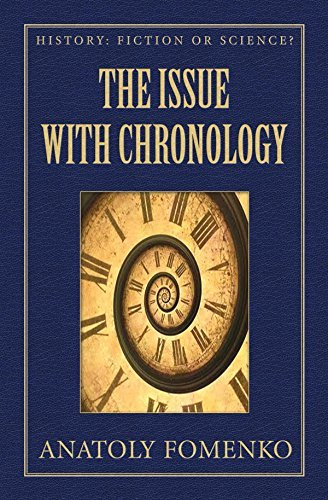
"The Issue with Chronology" crowns 30 years of meticulous and extensive research performed by the eminent mathematician Anatoly Fomenko and his colleagues. This research started actually as a unbelievable byproduct of russian-american competition in Moon exploration, when famous NASA scientist Robert Newton discovered a very strange phenomenon in lunar mechanics. This book is also the first volume in "History: Fiction or Science?" series, the fundamental oeuvre that exposes and expounds the numerous inveracities of the traditional version of history. The series "History: Fiction or Science?" contains data and conclusions that aren’t anything short of revolutionary. The alternatives offered to classical history are stunning, unorthodox to the extent of being labelled heretical by virtually every scholar of history, and daring enough to be considered preposterous at first sight, although this impression never lasts longer than it takes one to read a few pages attentively. In "The Issue with Chronology" we are reminded of when the contemporary chronological scale was created and by whom, with the culprits named as the XVI-XVII century clergy that was in charge of all matters historical in that age. We also learn that the consensual model of history had prominent critics ever since its creation – among them such names as Sir Isaac Newton and Jean Hardouin, chief librarian of Louis XIV, the Sun King of France. The author dissects every historical age and analyses the data from every source imaginable – Roman and Egyptian chronology take a good beating, and it goes rapidly downhill from there. Poggio Bracciolini and Petrarch take the blame for creating the legend of a mythical Classical age that never was. The Biblical events are moved a lot closer to us historically, as well as geographically (the Biblical Jerusalem being identified with the mediaeval Constantinople, for instance). The New and the Old Testament swap their positions on the chronological scale, both exposed as referring to mediaeval events. Our perception of history begins to change dramatically even before we’re through with "The Issue with Chronology".